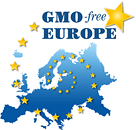Berlin Declaration adopted
8th May 2015 in Berlin
Download the Berlin declaration in English
Berliner Erklärung auf Deutsch herunterladen
Download Both languages and press contacts
See more pictures taken by © Dieter H. Engler and © Volker Gehrmann
Presse-Erklärung des Ministeriums NRW
Presse-Erklärung des Ministeriums Hessen
Verbraucherminister Alexander Bonde: „Gentechnik-Freiheit in Europa verteidigen“
Hamburg tritt als 63ste Region dem europäischen Netzwerk gentechnikfreier Regionen bei
GLOBAL 2000: Klares Bekenntnis zu Gentechnikfreiheit wird im Lichte von TTIP immer wichtiger
02elf Landwirtschaft und Lebensmittel müssen gentechnikfrei bleiben
Junge Welt: Fast alle gegen Gentechnik
Gentechnikgegner feiern Anbauverbot
Regierungen, Firmen, NGOs: Gemeinsame Position
Die nächsten Schritte zur Gentechnikfreiheit
Groups from Canada, Australia and Japan warn Europeans about GM oilseed rape contamination
Hungary to become first Member State to implement new EU regulations on GMOs
USDA/FAS: GMO-Free Conference in Berlin
GMO-Free Conference in Berlin _Berlin_Germany_5-11-2015
Berlin Declaration
400 participants from 60 countries today concluded the GMO-FREE EUROPE conference and vowed to continue and intensify their cooperation to keep the European Union free of GMOs, to develop a sustainable protein strategy for Europe and to collaborate with GMO FREE movements around the world.
In a joint declaration participants from the "three pillars" of the GMO FREE EUROPE Conference emphasize the four guiding principles and objectives: · Subsidiarity Principle, · Precautionary Principle, · Polluter-pays-Principle, · Freedom of choice for everybody and point out the following:
Opt Out
We accept the compromise reached by the European Parliament and the Council regarding the possibility for Member States to restrict or prohibit the cultivation of genetically modified organisms (GMOs) on their territory. We urge Member States to make the most effective use of this new Directive (EU) 2015/412 within their national, and where appropriate, regional legislation and ensuring legal certainty of territorial bans on cultivation. We emphasise that the adoption and implementation of Directive (EU) 2015/412 does not diminish the necessity to resolve shortcomings of the authorisation and risk assessment procedure at the EU level in any way. Furthermore, making use of the opt-out option cannot reduce a Member States’ influence and responsibility within the authorisation procedure.
European Protein Strategy
The European Union’s soya imports are equivalent to 12 million hectares of arable land and account for 97% of its demand. This jeopardizes the independence of the EU food supply and causes destructive land use practices in exporting countries. The widespread absence of legumes from crop rotations in Europe has huge negative consequences for our climate, soil fertility, nitrogen balance and biodiversity.
We demand that the EU Parliament and Commission develop a coherent European Protein Strategy to address all these issues. It should effectively promote the sustainable production and use as food and feed of GMO-free oilseeds, protein crops and legumes in Europe. This requires research, development efforts as well as coherent provisions of the EU’s Common Agricultural Policy. Member states should use existing instruments of the CAP and commit sufficient R&D funds to this end.
TTIP
We demand that EU standards on health, the environment, legal certainty and democracy must not be lowered by TTIP or any other free trade agreements. The precautionary principle, as a fundamental principle of EU policies, must not be undermined. We point out that neither existing nor future safety and labelling rules of the EU and its Member States may be restricted or prohibited by the TTIP or other free trade agreements.
Low Level Presence
GMO-free products and seed must remain GMO-free. We therefore demand that no thresholds are established for the contamination of food and feed with GMOs not authorized within the EU. For seeds, not labelled as GMO, the current zero tolerance principle for GMO contamination must be maintained.
Non-GMO-Labelling
Consumers must have a right to full transparency and choice on the use of GMOs in the food they buy. This must also include the use of GMO feed in animal products. We are calling for a European wide harmonized approach to non-GMO-labelling on animal products. In the absence of such a system we ask national governments to implement national labelling systems for animal products fed without GMOs, which already exist in Germany, France, Austria and Luxembourg. Member states should support and participate in drafting an international GMO-free labelling standard, for example the process initiated in Moravske Toplice.
New Technologies
The precautionary principle also should apply for new technologies of genetic modification. New technologies, not yet known when defining GMOs about 25 years ago, have to be assessed in a common coherent and transparent EU-process and must not be abused to undermine the present EU GMO legislation, safety and international standards.
Participants came from the following countries:
Albania, Argentina, Armenia, Australia, Austria, Belgium, Benin, Bosnia and Herzegovina, Brazil, Bulgaria, Canada, Croatia, Czech Republic, Ecuador, France, Gambia, Georgia, Germany, Ghana, Greece, Hungary, India, Ireland, Italy, Japan, Kenya, Kosovo, Latvia, Malawi, Malaysia, Mali, Mexico, Nepal, Netherlands, New Zealand, Nigeria, Northern Ireland, Norway, Poland, Portugal, Republic of Macedonia, Romania, Russia, Serbia, Sierra Leone, Slovenia, South Africa, Spain, Sweden, Switzerland, Tanzania, Togo, Turkey, Uganda, UK, Ukraine, USA, Uzbekistan, Zambia
***
Watch videos from the GMO-FREE EUROPE Conference Berlin May 6 to 8, 2015 including the interviews with participants from Brazil, Benin, Japan, India, USA and New Caledonia on gmo-free-regions.org.
Pictures from the conference are gathered here.




